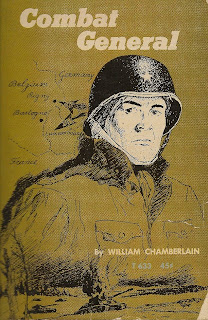Years ago, I read Stephen Hunter’s novel HOT SPRINGS, the first book in his Earl Swagger series. I thought it was one of the best books I’d read in a long time, so I read the sequel PALE HORSE COMING, and loved it, too, although I thought it wasn’t quite as good as HOT SPRINGS. When the third book in the series, HAVANA, came out, I read it, of course, and it was okay, but not nearly as good as the first two. And after that, I never read anything else by Hunter, although I’ve always intended to and I actually own most of his books.
But then I noticed that there’s a fourth Earl Swagger novel called THE BULLET GARDEN, and it’s a prequel to the others, taking place during World War II, so I had to give it a try. THE BULLET GARDEN is set during summer 1944, after D-Day but well before the Battle of the Bulge. The American forces have gotten bogged down in the hedgerows of Normandy because a mysterious German sniper—or snipers—seems to be able to see in the dark and is eliminating American officers and NCOs, destroying morale and making it impossible for the Americans to advance. Gererals Eisenhower and Bradley want somebody to figure out what’s going on with the sniper and put a stop to it, and who better to do that than Earl Swagger, a Marine sergeant who has already made quite a reputation for himself fighting in the Pacific.
All this is established fairly quickly, and the rest of the novel follows Earl as he’s flown to England, made a major in the relatively new OSS, and launches an investigation into the sniper problem while trying to navigate the tricky back channels of politics and espionage, an area which is not one of Earl’s natural talents.
Hunter’s reputation is that of a guy who writes really well about guns and shooting. This is absolutely correct. His action scenes are very realistic and have an undeniable air of authenticity. THE BULLET GARDEN is full of great characters and scenes and bits of dialogue.
But the plot is incredibly slow to develop and muddled by page after page of description and background that’s well-written but doesn’t really do anything except show off Hunter’s prose. I’m no fan of stripped-down modern writing. I don’t mind some telling instead of showing. A lot of modern thrillers devoid of description and oh-so-careful never to mention the weather or use a speech tag other than “said”—and as few of those as possible—strike me as bland and all sounding alike. But dang, Hunter really goes overboard in the other direction in this book. It’s just too blasted wordy. Then he adds an unpleasant subplot that may be necessary for the overall story arc but really comes across as anticlimactic. There are also several cameos by real-life writers that skirt right up to the edge of being too cutesy but don't quite go over it.
Despite all that, as I said above there are some great scenes, some thrilling, some heartbreaking, that I suspect will stay with me. I still love Earl Swagger as a character and he’s in fine form in this novel. There’s enough real suspense that at times I was flipping the pages, in a hurry to find out what was going to happen. If you’ve read the first three books in this series, by all means you should read THE BULLET GARDEN, too. It’s available on Amazon in e-book, audio, hardcover, and paperback editions. But like HAVANA, it’s just okay.
Also, this novel isn’t just a prequel to the other Earl Swagger books, but it's also a prequel to Hunter’s first novel, THE MASTER SNIPER, published more than forty years ago. I happen to have a copy of that one. I think I’ll have to read it soon.



















